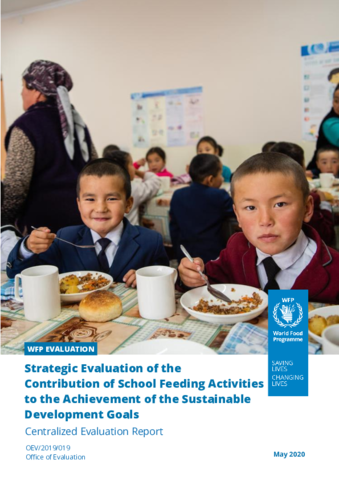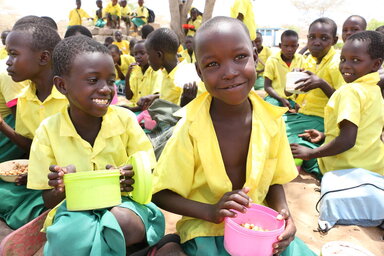
While acknowledging progress against the school feeding policy objectives, the evaluation concluded that implementation of the policy fell short of ambitions due to funding and capacity constraints and insufficiently tailored responses. It notes however that the strategy for 2020–2030 sets out an ambitious and transformative agenda, serving as a policy update as well as an implementation plan. Opportunities for enhancing WFP's contribution are being generated by the strategy, and the partnerships that have been built around the school health and nutrition agenda, and the collaborative approaches and partnerships that have characterized the COVID-19 response. The preparation of the next WFP strategic plan is an important opportunity to reinforce school feeding as a WFP priority.
Country strategic plans and regional implementation plans are increasing the visibility of the strategic role of school feeding, and WFP has a well recognized role in this field. The strategy has helped highlight and is beginning to address some of the systemic constraints that hamper WFP efforts to promote and support national school feeding systems However, WFP will need to actively manage risks to the school feeding agenda including the risk of reduced prioritization, not being specific enough about WFP's role and added value, and the likely challenges in obtaining adequate (which may become more acute in the aftermath of COVID-19).

